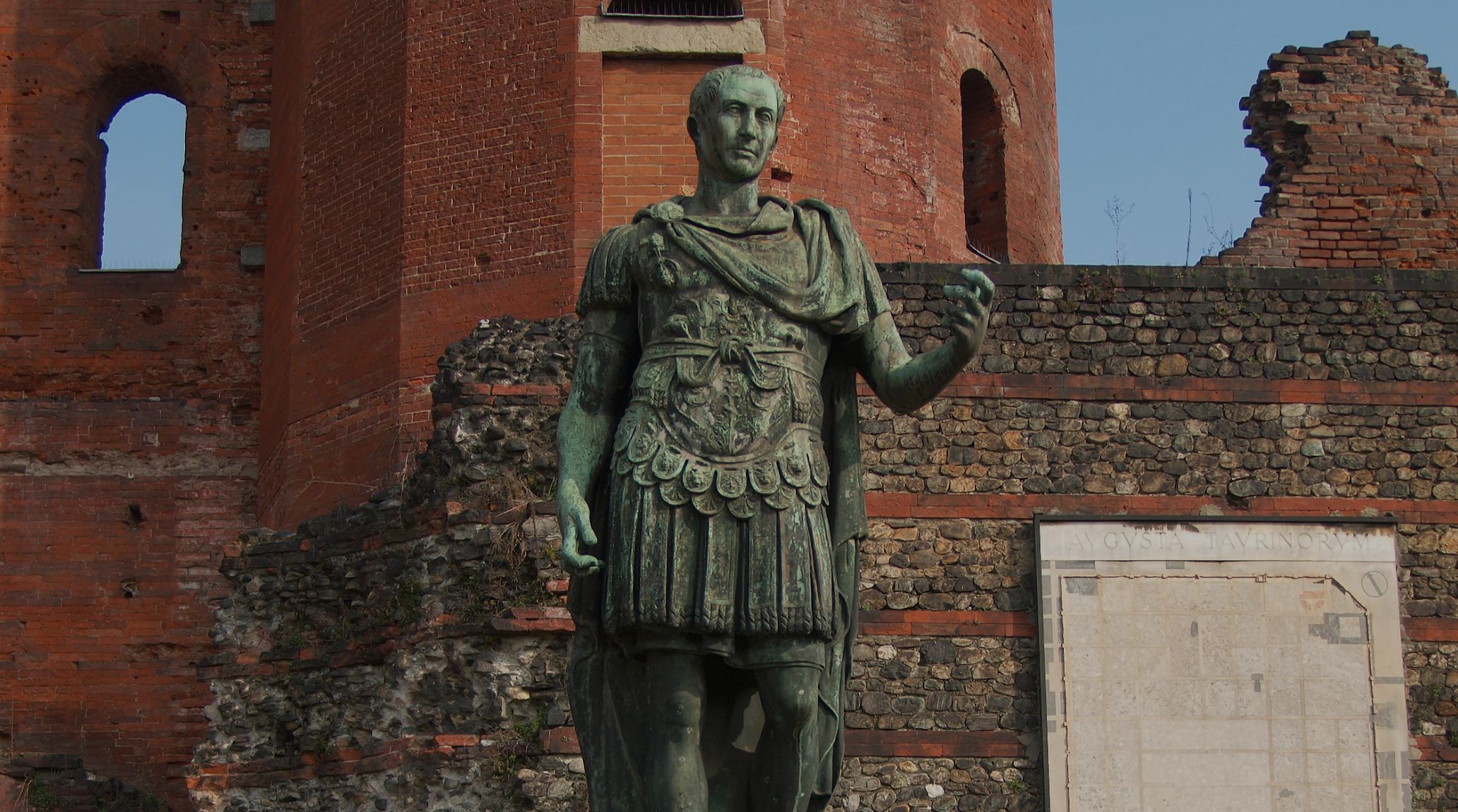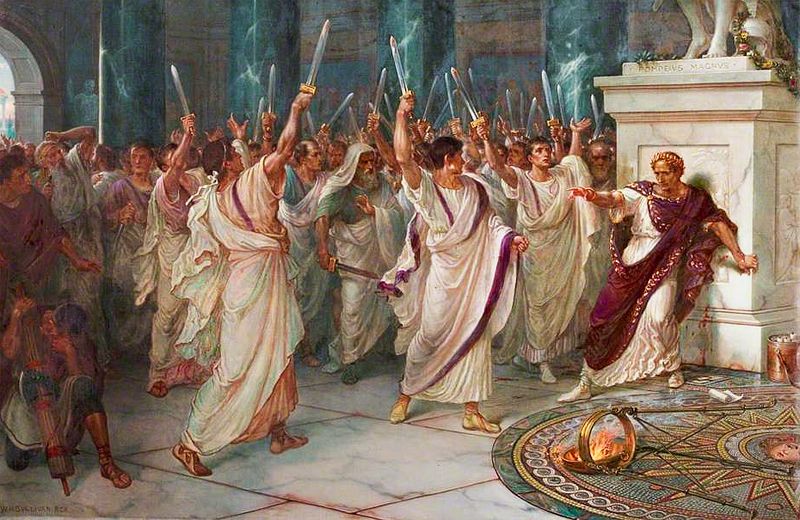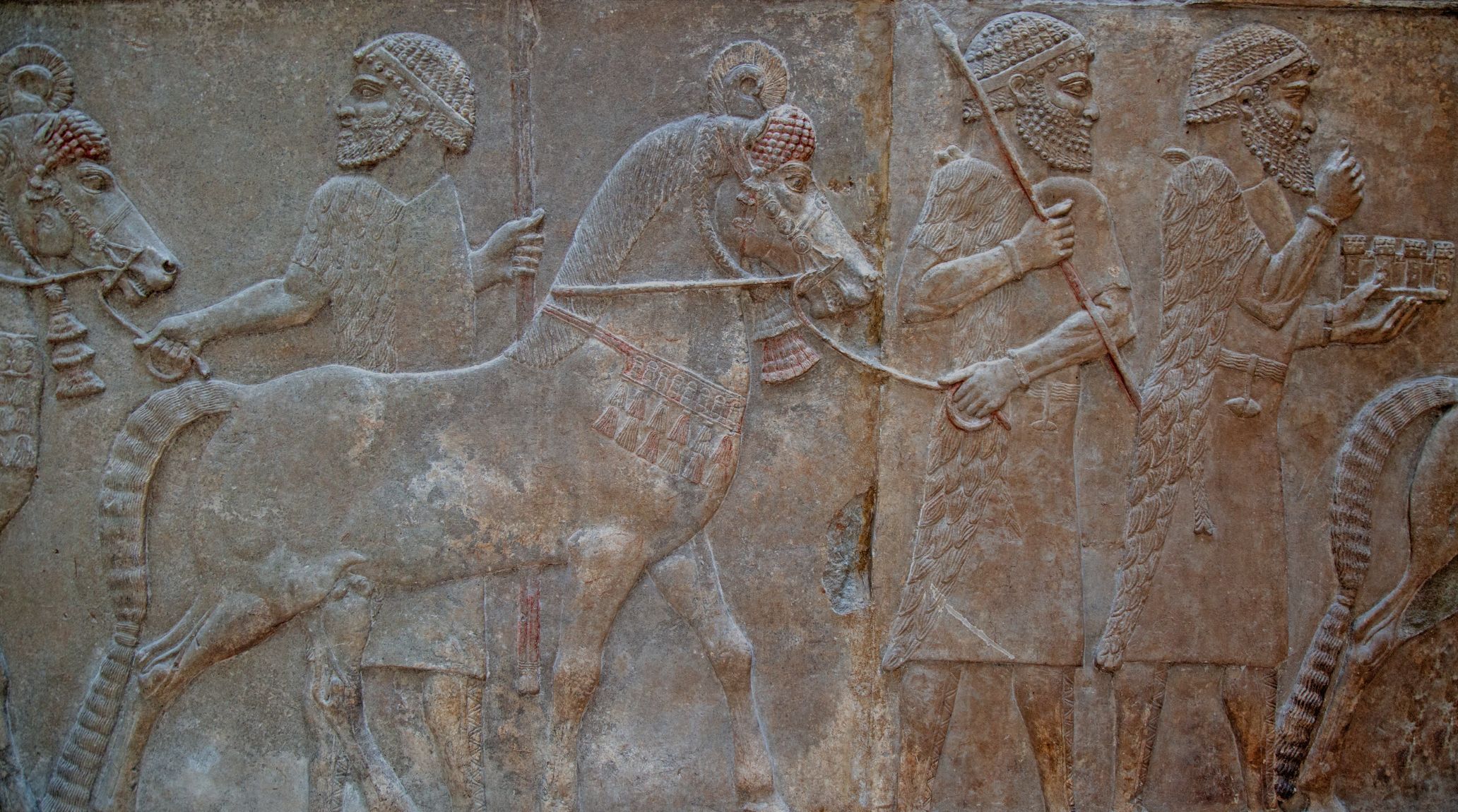
“
Julius Caesar is one of history’s most famous figures, known for his incredible rise to power and his dramatic downfall. Starting from a noble family, he quickly became a top military leader and political figure in ancient Rome. This blog delves into the fascinating saga of Julius Caesar, exploring key moments that defined his ascent and the dramatic events that led to his untimely demise on the Ides of March.1
1
”
Gaius Julius Caesar was a Roman general and statesman who played a pivotal role in the late Roman Republic. As a member of the First Triumvirate, he led Roman armies in the Gallic Wars and later defeated his political rival Pompey in a civil war. 1
After becoming governor of Gaul in 58 BCE, Julius Caesar significantly expanded the Roman Republic's territory across Europe, reaching the Atlantic Ocean and the English Channel. Over the course of the brutal eight-year Gallic Wars, his legions defeated France, Belgium, and Switzerland. 2
In early 47 BCE, when Roman reinforcements arrived, Caesar’s forces defeated Ptolemy's army at the Battle of the Nile. After the young king drowned while fleeing, Caesar appointed Cleopatra and her 12-year-old half-brother, Ptolemy XIV. 3
Caesar began his political career as a prosecuting advocate. His oratory skills and charisma quickly earned him a reputation, paving the way for his ascent in Roman politics. 4
In 62 BCE, Caesar's wife, Pompeia, hosted a women-only religious festival. A young nobleman, disguised as a woman, infiltrated the event, causing a scandal. Although Caesar divorced Pompeia, he famously stated, "Caesar's wife must be above suspicion." 5

On March 15, 44 BCE, Caesar was assassinated by a group of senators. The date, known as the Ides of March, marked a turning point in Roman history. Among the conspirators was Brutus, whom Caesar reportedly addressed with, "Et tu, Brute?" (And you, Brutus?).
In 49 BCE, Caesar made the fateful decision to cross the Rubicon River with his army, igniting a civil war. This act was seen as an insurrection against the Roman Senate and is famously quoted as "alea iacta est" (the die is cast). 6
During his time in Egypt, Caesar became romantically involved with Cleopatra, the Queen of Egypt. Their affair was both political and personal, solidifying an alliance that had lasting implications for Rome. 7
In 44 BCE, Caesar was declared "Dictator Perpetuo" (Dictator for Life) by the Senate. This unprecedented move alarmed many senators who feared the end of the Roman Republic and the rise of a monarchy. 8
Caesar's military campaigns are legendary. He expanded Rome’s territories significantly, most notably with his conquest of Gaul (modern-day France and Belgium), which he documented in his commentaries, "Commentarii de Bello Gallico. 9
During his rule, Caesar implemented several key reforms, including the Julian calendar, which restructured the Roman calendar system, leading to the 365-day year with a leap year every four years. 10

Caesar’s calendar reform, the Julian calendar, was a significant improvement over the previous Roman calendar and remained in use for over 1600 years until the Gregorian calendar was introduced in 1582.
Caesar invested heavily in public works, building the Forum of Caesar and the Basilica Julia, as well as numerous temples and public buildings, transforming the landscape of Rome. 11
Caesar’s written works, especially "Commentarii de Bello Gallico," offer a firsthand account of his military campaigns and have been studied for centuries for their literary style and historical content.12
After his victories, Caesar celebrated multiple triumphs in Rome. These elaborate parades showcased his spoils of war and prisoners, reinforcing his status as a military hero.13
Caesar’s relationship with the Senate was complex. While he made efforts to include senators in his reforms, his accumulation of power and bypassing of traditional senatorial authority led to growing tensions. 14
Caesar formed the First Triumvirate with Pompey and Crassus, an informal political alliance that helped him secure his consulship and military command. This alliance, however, eventually dissolved, leading to civil war. 15
Despite his assassination, Caesar’s legacy endured. His adopted heir, Octavian (later Augustus), became the first Roman Emperor, marking the end of the Republic and the beginning of the Roman Empire. 16
Caesar’s lineage continued to play a significant role in Roman history. His great-nephew and adopted son, Augustus, established the Julio-Claudian dynasty, which ruled Rome for over a century. 17
Julius Caesar has influenced countless works of art, literature, and drama. Shakespeare’s play "Julius Caesar" immortalized his life and death, highlighting his complex character and political intrigue.18


